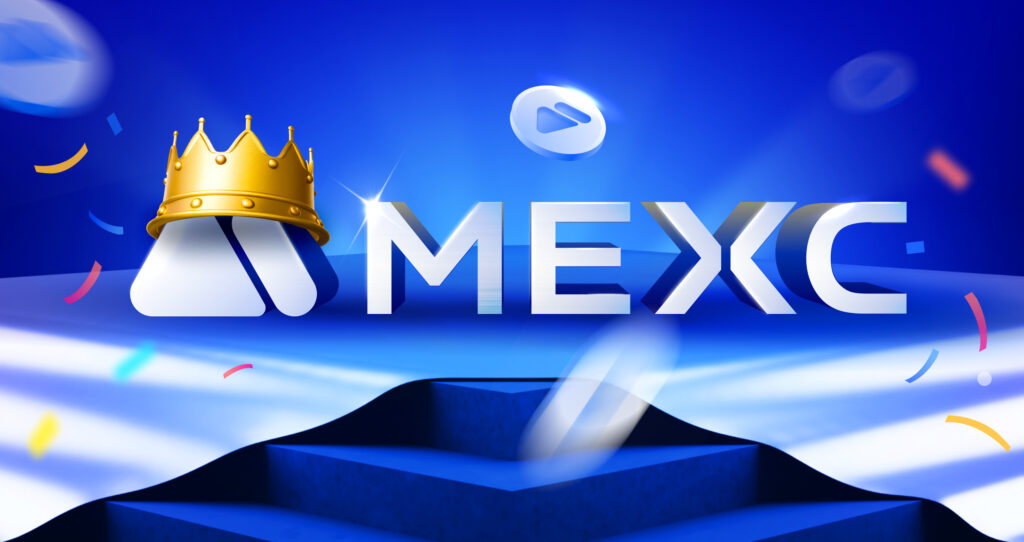
6 minute read
Does MEXC Report to the ATO? What You Need to Know
from MEXC
by Exness_India
Does MEXC report to the ATO? The short answer is: No, MEXC does not directly report to the Australian Taxation Office (ATO). However, that doesn’t mean your trading activity is invisible or tax-free. If you're an Australian resident using MEXC or any other offshore crypto exchange, your activity may still be legally required to be reported — and the ATO has tools to find out if you don’t.

✅ Trade with MEXC now: Open An Account 👈
In this article, we’ll explain:
What MEXC is and where it’s based
Whether MEXC reports to the ATO
How the ATO tracks offshore crypto activity
What your crypto tax obligations are in Australia
How to stay compliant while using MEXC or other offshore exchanges
Let’s dive straight into it.
What Is MEXC and Where Is It Based?
MEXC (formerly known as MXC Exchange) is a global cryptocurrency exchange founded in 2018. It's not based in Australia, and it does not have a registered office or local regulatory license under ASIC (Australian Securities and Investments Commission).
MEXC operates under offshore jurisdictions, and as of this writing, it is not required to comply with Australian financial reporting standards or regulations, including automatic data sharing with the ATO.
This distinction is important: because MEXC is not an Australian exchange, it is not under any direct obligation to report your trading activity to Australian tax authorities.
Does MEXC Report to the ATO?
No, MEXC does not report directly to the Australian Taxation Office (ATO).
MEXC is a non-Australian, offshore exchange, which means it’s not a part of the ATO’s standard data-matching agreements with local or registered financial institutions.
However, this doesn't give you a free pass to hide crypto activity. The ATO has many other ways to identify undeclared crypto gains, even when they occur on offshore platforms.
How Can the ATO Track Crypto Traders Using MEXC?
Even though MEXC doesn’t report directly, the ATO has been aggressively expanding its crypto surveillance strategies over the past few years. Here's how they might find out about your MEXC activity:
1. Data Matching with Banks and Payment Providers
If you deposit or withdraw fiat (AUD) to or from MEXC using Australian bank accounts, that activity could be flagged. The ATO routinely works with banks, payment platforms (like PayPal or Wise), and financial institutions to gather data.
2. International Information-Sharing Agreements
Australia is part of the Common Reporting Standard (CRS) and participates in information exchange with over 100 countries. If MEXC uses third-party services or banks in countries participating in the CRS, there is still a risk of your identity and financial activity being shared with the ATO indirectly.
3. Digital Forensics & Blockchain Analytics
The ATO uses advanced blockchain analysis tools (like Chainalysis or similar platforms) to track wallets, addresses, and large crypto transactions. If you move assets from or to wallets linked to your name, the ATO may trace that movement—even if the trades happened on an offshore platform like MEXC.
4. Audit Triggers
A mismatch between your reported income and bank activity, unexplained wealth, or voluntary disclosures from other platforms could trigger a tax audit, leading the ATO to scrutinize your crypto dealings, including offshore ones.

✅ Trade with MEXC now: Open An Account 👈
Your Tax Obligations in Australia (Even When Using MEXC)
If you're an Australian tax resident, you're legally required to report all of your global income and capital gains, including crypto activity—even if that activity happens on offshore exchanges like MEXC.
Here’s what you need to report:
1. Capital Gains Tax (CGT)
Selling crypto for AUD or any fiat
Swapping one cryptocurrency for another
Using crypto to pay for goods/services
Moving crypto between wallets you own may not be taxable, but needs to be tracked properly
If you make a profit from any of these events, you’re subject to capital gains tax. Holding for more than 12 months may make you eligible for a 50% CGT discount.
2. Income Tax (if applicable)
If you earn crypto from:
Staking
Mining
Airdrops
Referral rewards
DeFi or yield farming…it’s considered ordinary income and must be reported at fair market value on the day you receive it.
Penalties for Not Reporting Crypto Income
The ATO treats crypto seriously. Failing to declare income or capital gains—whether intentional or accidental—can lead to:
Back taxes owed
Interest charges
Fines
Penalties up to 75% of the tax shortfall
In extreme cases, even criminal prosecution for tax evasion
They have already contacted hundreds of thousands of Australians through their crypto data-matching program, sending letters and warnings to suspected under-reporters.
Does MEXC Require KYC?
As of now, MEXC allows limited trading with just an email, but to access full features such as higher withdrawal limits, users must complete KYC (Know Your Customer) verification.
This means that your identity is likely tied to your trading activity if you’ve verified your account.
Even without KYC, blockchain activity isn’t anonymous—only pseudonymous. Once your wallet or transaction pattern is linked to your name, it becomes traceable forever.
How to Stay Compliant While Using MEXC
Just because MEXC doesn’t report to the ATO doesn’t mean you should avoid reporting your activity. Staying compliant protects you from future audits and legal issues. Here’s how:
1. Track Every Transaction
Use tools like:
Koinly
CoinTracking
CryptoTaxCalculator (Australia-specific)They can automatically import your trade history from MEXC via API or CSV and help calculate capital gains, income, and losses.
2. Declare Crypto Activity on Your Tax Return
Declare crypto in your tax return under:
Capital Gains for disposals
Income for rewards, airdrops, staking, etc.
Ensure your accountant understands crypto — or use a crypto tax expert.
3. Keep Records for 5 Years
ATO requires you to retain:
Dates of transactions
AUD value at time of transaction
Purpose of the transaction
Wallet addresses and transaction hashes
Exchange statements (yes, from MEXC too)
4. Don’t Try to Hide Activity
The ATO is more lenient when you self-disclose mistakes or omissions, rather than waiting to be caught. If you’ve forgotten to report past trades, consult a tax professional and amend your return voluntarily.
What About Crypto-to-Crypto Swaps on MEXC?
Yes, crypto-to-crypto trades are taxable events in Australia. Swapping Bitcoin for Ethereum, or trading altcoins on MEXC, still counts as a disposal and may trigger capital gains or losses.
Even if you didn’t convert back to AUD, you’re still legally obligated to report these trades.
Can I Avoid the ATO by Keeping Funds Offshore?
No. If you are an Australian tax resident, you are taxed on your worldwide income, including crypto.
Keeping funds on MEXC or another offshore exchange does not exempt you from Australian tax laws. The ATO has access to global data-sharing networks, and you are legally obligated to disclose your assets.
Final Verdict: Does MEXC Report to the ATO?
To summarize:
No, MEXC does not currently report directly to the ATO.
But the ATO can still find out about your crypto activity through bank data, international agreements, blockchain analysis, and audits.
You are legally required to report any gains, income, or crypto holdings regardless of where the exchange is based.
✅ Trade with MEXC now: Open An Account 👈
Read more:








